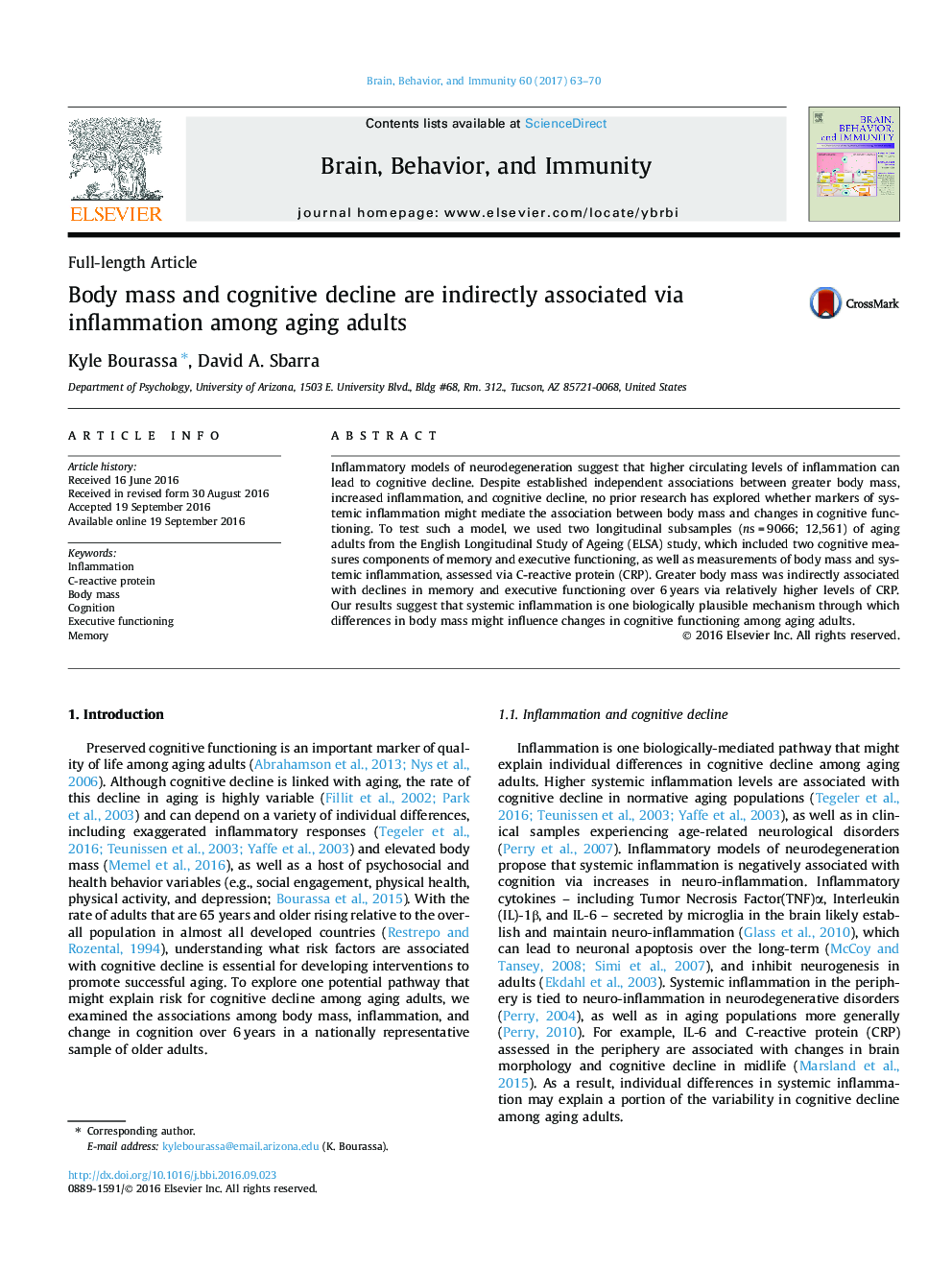| Article ID | Journal | Published Year | Pages | File Type |
|---|---|---|---|---|
| 5040736 | Brain, Behavior, and Immunity | 2017 | 8 Pages |
â¢Longitudinal associations of body mass, inflammation, and cognition are explored.â¢Body mass predicted change in systemic inflammation levels (CRP) over 4 years.â¢C-reactive protein predicted participants' rates of cognitive decline over 6 years.â¢Inflammation statistically mediated the association of body mass and cognition among aging adults.â¢The results support inflammatory models of neurodegeneration among aging adults.
Inflammatory models of neurodegeneration suggest that higher circulating levels of inflammation can lead to cognitive decline. Despite established independent associations between greater body mass, increased inflammation, and cognitive decline, no prior research has explored whether markers of systemic inflammation might mediate the association between body mass and changes in cognitive functioning. To test such a model, we used two longitudinal subsamples (ns = 9066; 12,561) of aging adults from the English Longitudinal Study of Ageing (ELSA) study, which included two cognitive measures components of memory and executive functioning, as well as measurements of body mass and systemic inflammation, assessed via C-reactive protein (CRP). Greater body mass was indirectly associated with declines in memory and executive functioning over 6 years via relatively higher levels of CRP. Our results suggest that systemic inflammation is one biologically plausible mechanism through which differences in body mass might influence changes in cognitive functioning among aging adults.
